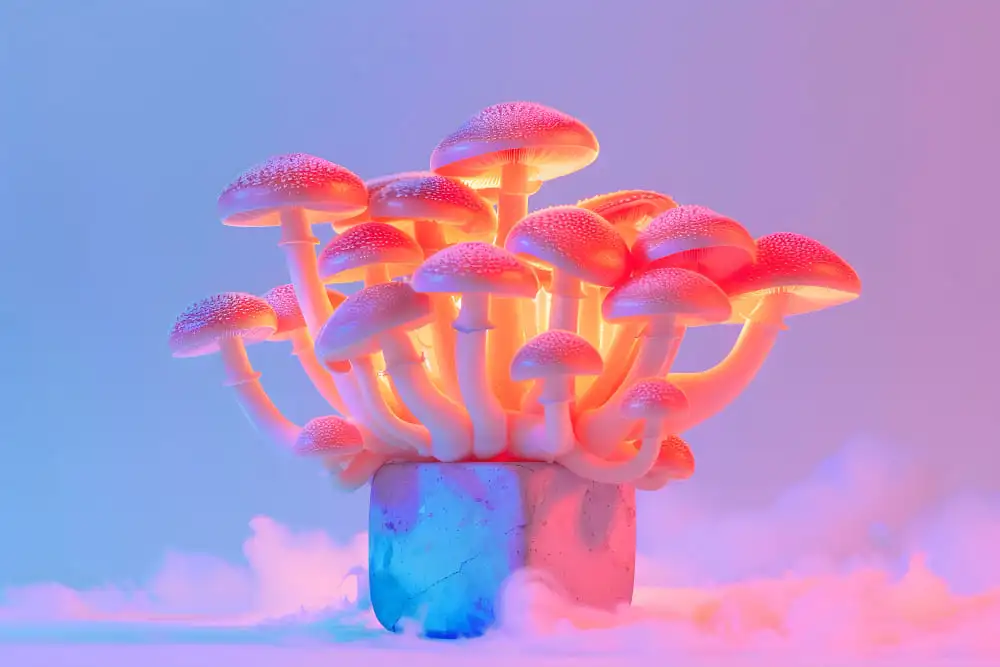The allure of natural substances for addressing complex issues like mental health has led to a surge of interest in psychedelic compounds, including psilocybin, the active ingredient in magic mushrooms. While research into its therapeutic potential is ongoing, it’s crucial to approach this topic with a balanced perspective, acknowledging both the potential benefits and the significant magic mushrooms risks involved.
Understanding the Magic Mushrooms Risks: A Deeper Dive
While the potential therapeutic benefits of psilocybin have garnered significant attention, it’s equally important to understand the potential dangers associated with its use.
1. Psychological Risks
- Bad trips: These intense, negative experiences can manifest as fear, paranoia, anxiety, or a sense of losing control. While often temporary, they can be deeply distressing and have long-lasting psychological impacts, including the development of post-traumatic stress disorder (PTSD)-like symptoms.
- Hallucinogen persisting perception disorder (HPPD): This condition involves recurring visual disturbances or flashbacks after psilocybin use. While rare, it can significantly impact daily life, causing anxiety, distress, and interference with daily activities.
- Psychosis: In individuals with underlying vulnerabilities or predispositions, psilocybin can trigger or exacerbate psychotic symptoms, including delusions, hallucinations, and disordered thinking. These experiences can be distressing and may require professional intervention.
- Depression and anxiety: While psilocybin is being studied for its potential to alleviate these conditions, it can also induce or intensify depressive and anxious states, especially in susceptible individuals. The risk is heightened in those with a history of mood disorders.
- Existential crises: The profound experiences induced by psilocybin can sometimes lead to existential crises or questions about life’s meaning, which can be overwhelming for some. These crises may require professional support to navigate.
2. Physical Risks
- Physical discomfort: Nausea, vomiting, increased heart rate, blood pressure, and body temperature are common physical side effects of psilocybin use. These symptoms can be uncomfortable and may interfere with daily activities.
- Serotonin syndrome: In rare cases, combining psilocybin with other serotonergic substances (such as SSRIs or MDMA) can lead to a potentially life-threatening condition known as serotonin syndrome. Symptoms include agitation, confusion, tremors, and muscle rigidity.
- Accidental poisoning: Mistaking poisonous mushrooms for magic mushrooms can have severe consequences, including organ damage and death.
- Long-term effects: The long-term effects of psilocybin use are not fully understood, and there is a possibility of unknown risks, including potential impacts on cognitive function and brain development.
3. Legal Risks
- Possession and use: In most jurisdictions, the possession and use of magic mushrooms are illegal. This carries significant legal consequences, including fines, imprisonment, and a criminal record. These legal repercussions can have far-reaching implications for personal and professional life.
Factors Influencing Risk
Several factors can influence the likelihood of experiencing adverse effects from psilocybin use:
- Dosage: Higher doses are associated with increased risk of adverse reactions, including bad trips and physical discomfort.
- Set and setting: The individual’s mindset and the environment in which psilocybin is consumed significantly impact the experience. A supportive and safe setting can reduce the risk of adverse outcomes.
- Underlying mental health conditions: Individuals with pre-existing mental health issues, such as bipolar disorder, schizophrenia, or severe depression, may be at higher risk for adverse psychological effects.
- Substance use: Combining psilocybin with other substances, including alcohol, can increase the risk of adverse reactions and impair judgment.
- Tolerance: Regular use of psilocybin can lead to tolerance, requiring higher doses to achieve the desired effects, which increases the risk of adverse outcomes.
Seeking Professional Help
If you’re considering using magic mushrooms or have experienced adverse effects, it’s crucial to consult with a mental health professional. They can provide guidance, assess your individual risks, and offer alternative treatment options.
Remember, there are many effective and evidence-based treatments available for mental health conditions. Prioritizing safety and well-being is essential.





